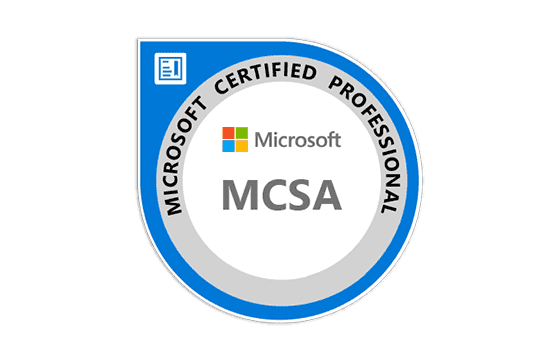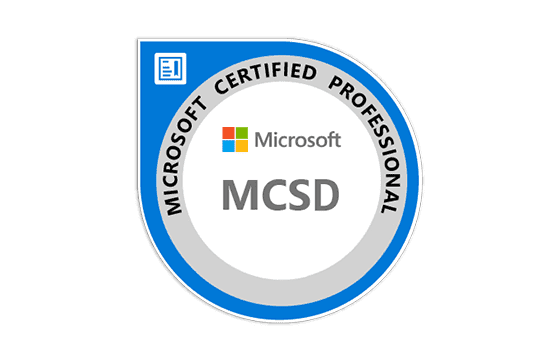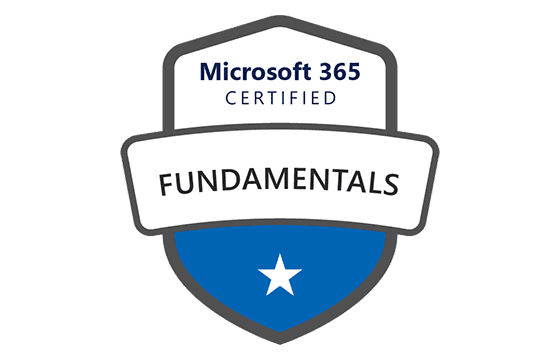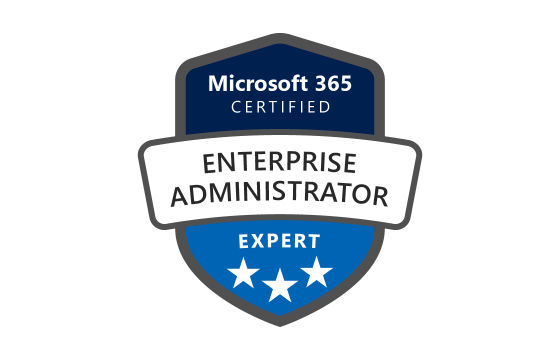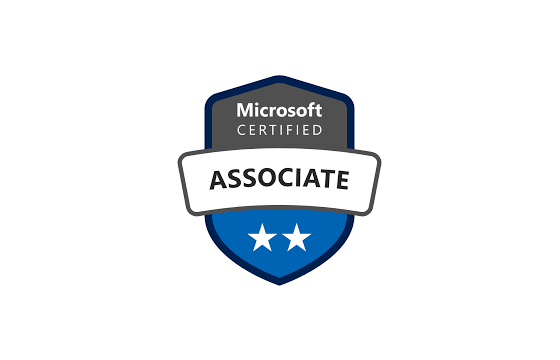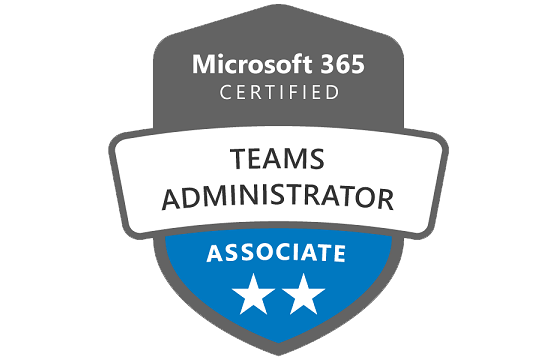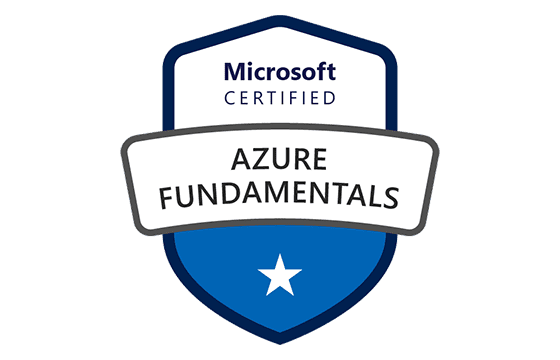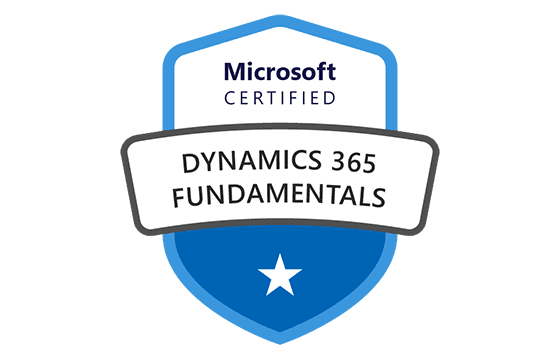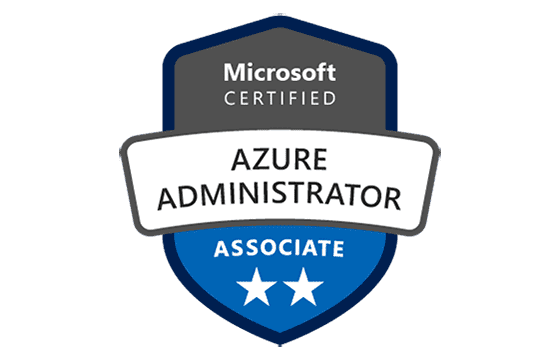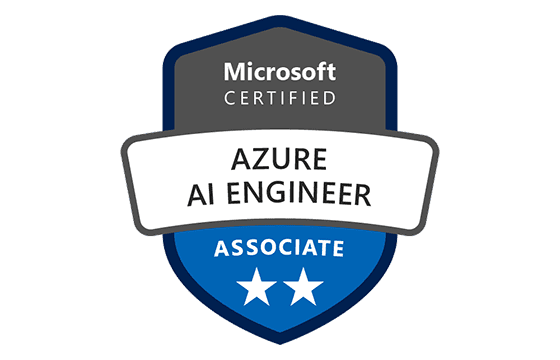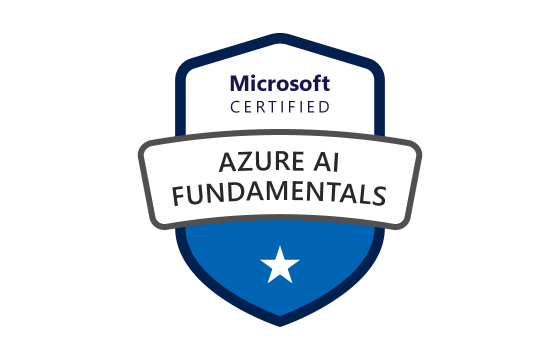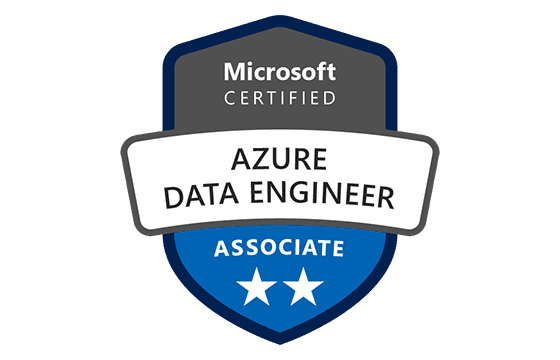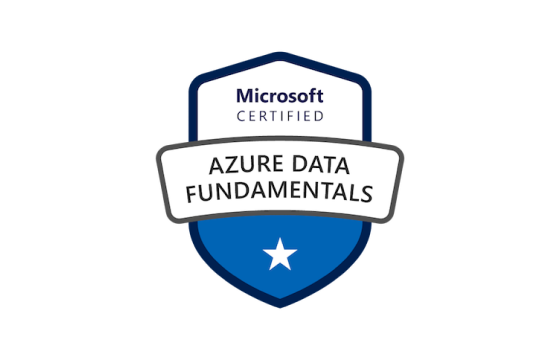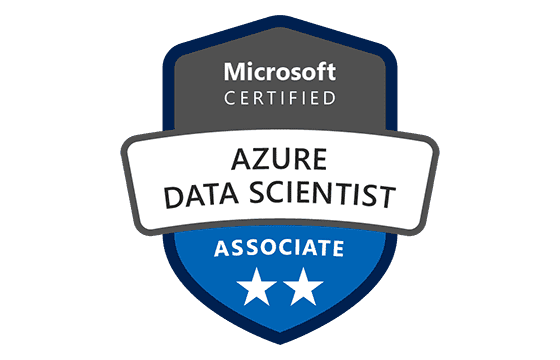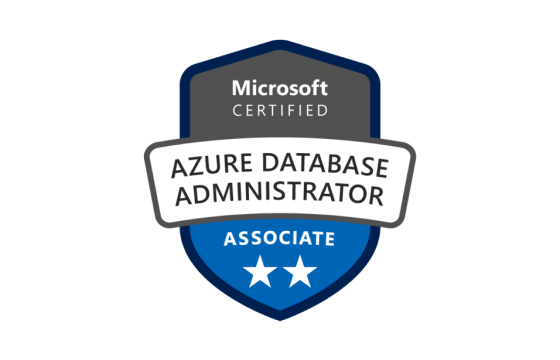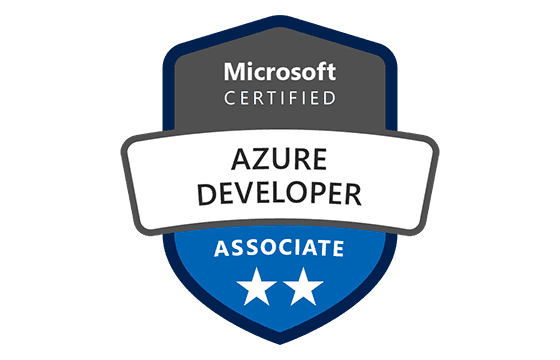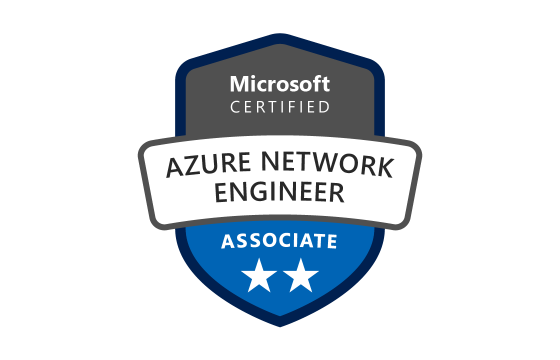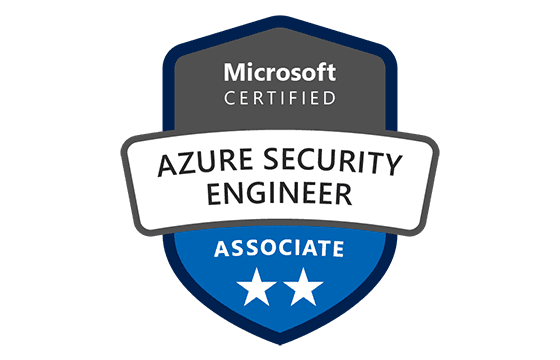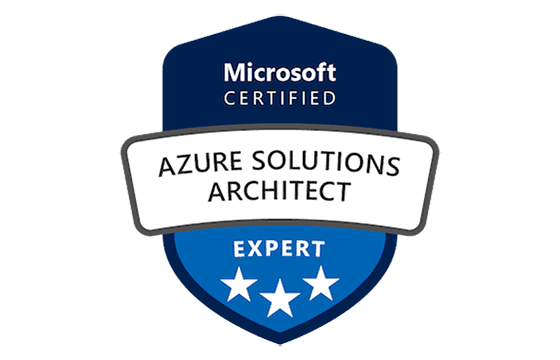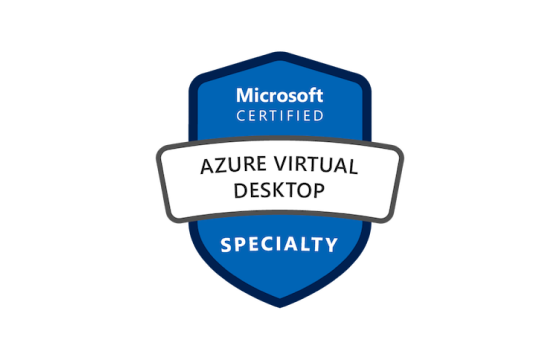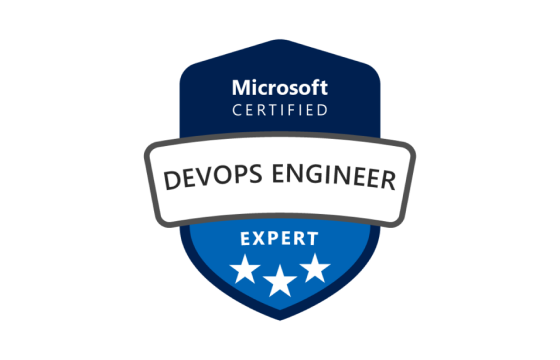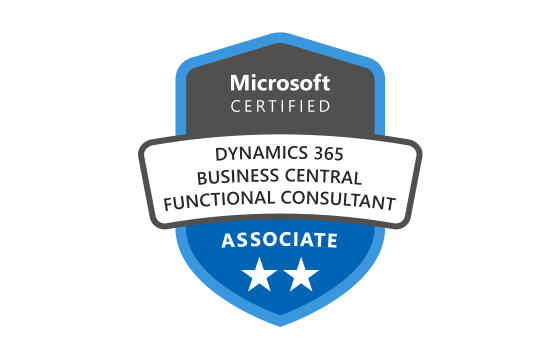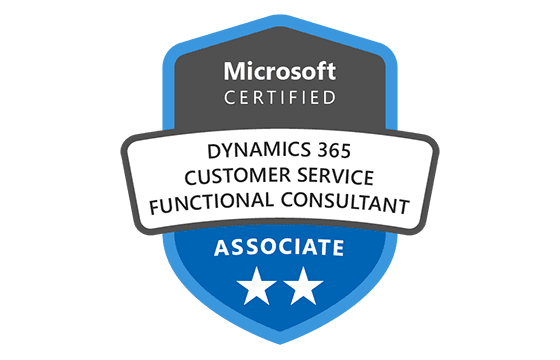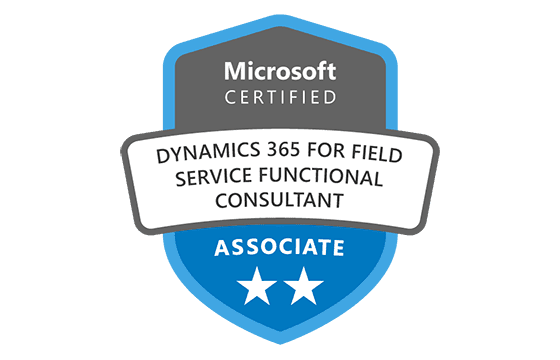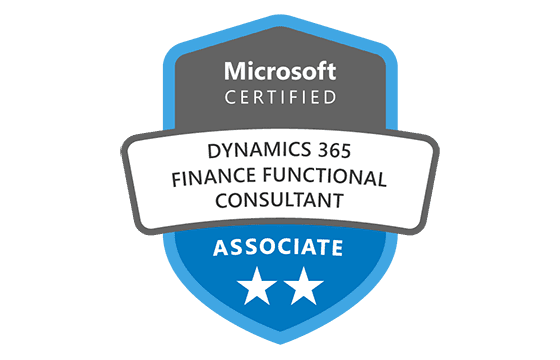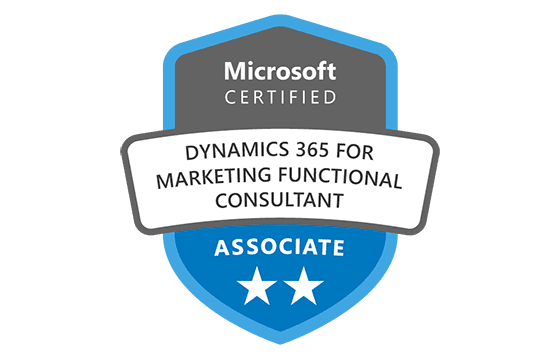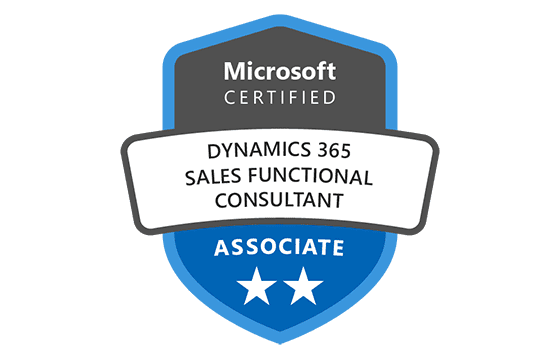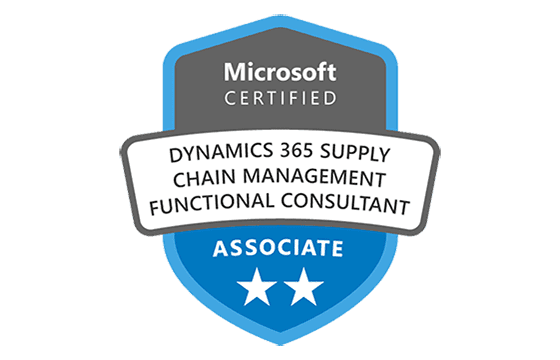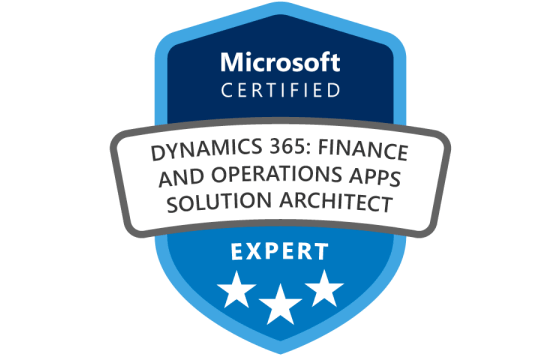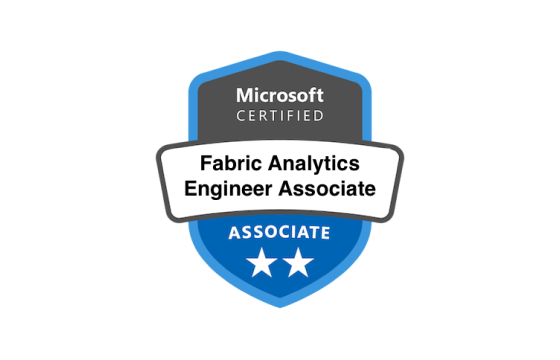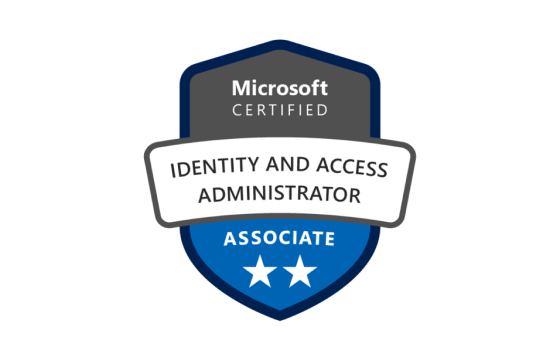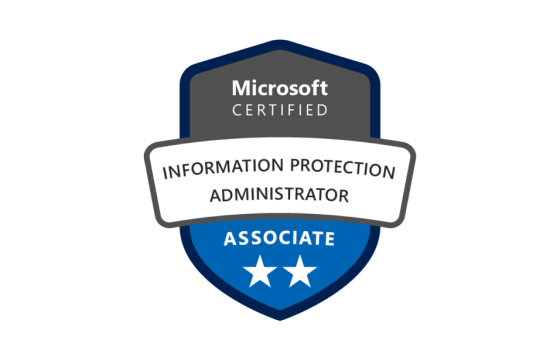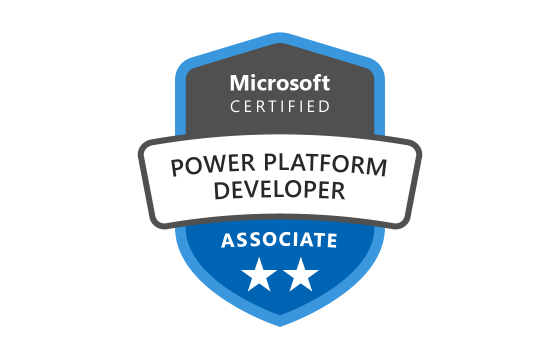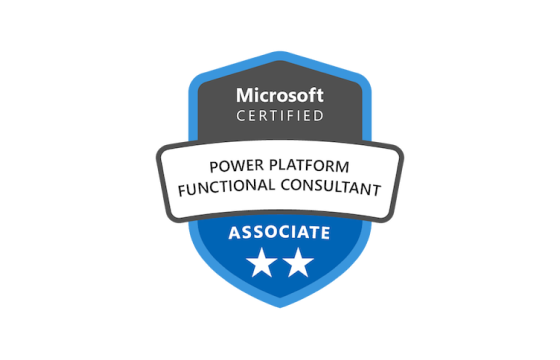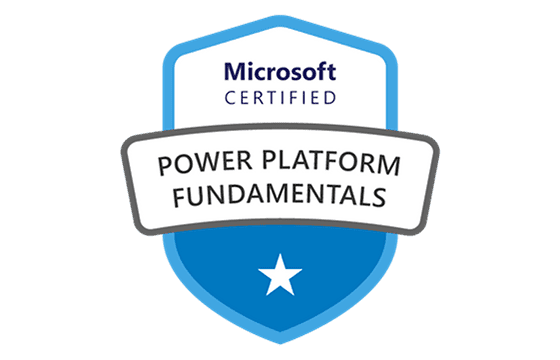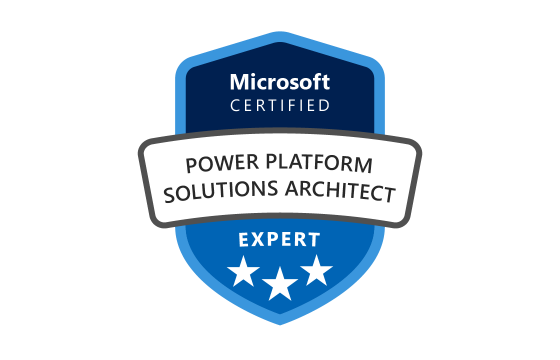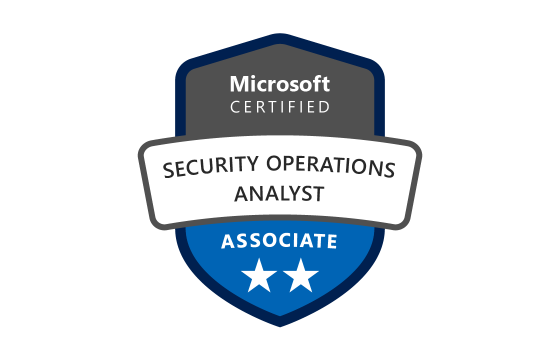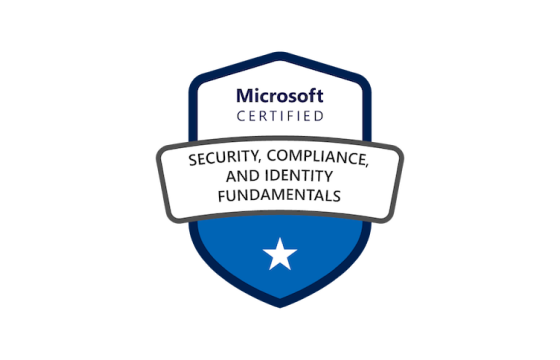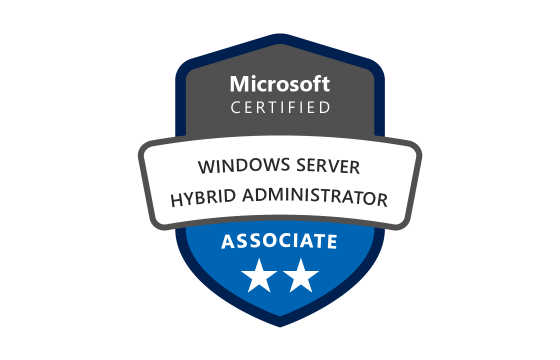Pass Your Microsoft Certified: Windows Server Hybrid Administrator Associate Certification Easy!
Microsoft Certified: Windows Server Hybrid Administrator Associate Certification Exams Questions & Answers, Accurate & Verified By IT Experts
Instant Download, Free Fast Updates, 99.6% Pass Rate.
Download Free Microsoft Certified: Windows Server Hybrid Administrator Associate Practice Test Questions VCE Files
| Exam | Title | Files |
|---|---|---|
Exam AZ-800 |
Title Administering Windows Server Hybrid Core Infrastructure |
Files 2 |
Exam AZ-801 |
Title Configuring Windows Server Hybrid Advanced Services |
Files 1 |
Microsoft Certified: Windows Server Hybrid Administrator Associate Certification Exam Dumps & Practice Test Questions
Prepare with top-notch Microsoft Certified: Windows Server Hybrid Administrator Associate certification practice test questions and answers, vce exam dumps, study guide, video training course from ExamCollection. All Microsoft Certified: Windows Server Hybrid Administrator Associate certification exam dumps & practice test questions and answers are uploaded by users who have passed the exam themselves and formatted them into vce file format.
Microsoft Certified: Windows Server Hybrid Administrator Associate – Complete Guide to Certification and Career Paths
The Microsoft Certified: Windows Server Hybrid Administrator Associate certification is specifically designed for IT professionals who manage Windows Server environments both on-premises and in hybrid setups that combine on-premises infrastructure with Microsoft Azure cloud services. Hybrid environments are becoming increasingly important as organizations aim to leverage the flexibility, scalability, and security of the cloud while maintaining critical workloads on local servers.
A Windows Server Hybrid Administrator plays a critical role in ensuring that these environments run efficiently. These professionals are responsible for deploying, configuring, managing, and maintaining Windows Server workloads, whether they reside in a traditional data center or a hybrid infrastructure that integrates with Azure. The role requires a combination of foundational server administration skills and an understanding of cloud technologies, networking, security, and disaster recovery.
The hybrid nature of modern IT environments requires administrators to think beyond traditional server management. In addition to handling tasks like virtual machine creation, storage management, and user account maintenance, hybrid administrators must be adept at configuring Azure integration, managing hybrid networking, and implementing secure identity solutions that span both on-premises and cloud environments.
Key Responsibilities of a Windows Server Hybrid Administrator
Windows Server Hybrid Administrators have a wide range of responsibilities that go beyond traditional system administration. Their role typically includes:
Deploying and configuring Windows Server instances in both on-premises and cloud environments
Managing storage solutions, including direct-attached storage, Storage Spaces, and Azure-based storage
Configuring and maintaining virtual machines to ensure high performance and availability
Setting up and managing networking, including DNS, DHCP, VPNs, and hybrid connectivity with Azure
Integrating and managing Active Directory and Azure Active Directory for identity and access control
Implementing security best practices to protect workloads and data
Monitoring system performance and addressing operational issues
Planning and executing backup and disaster recovery strategies
By handling these responsibilities, hybrid administrators ensure that the organization’s IT infrastructure is reliable, secure, and scalable.
Essential Skills Measured by the Certification
The Windows Server Hybrid Administrator Associate certification validates a candidate’s ability to manage hybrid server environments effectively. Candidates are expected to demonstrate proficiency in several key areas:
Storage and Compute Management
Administrators must manage storage solutions effectively to ensure high availability and performance. This includes configuring storage spaces, managing virtual hard disks, and integrating with cloud storage solutions. Compute management involves creating and managing virtual machines, optimizing workloads, and monitoring resource utilization.
Networking and Hybrid Connectivity
Networking skills are critical for hybrid environments. Administrators must configure network interfaces, manage IP addressing, and troubleshoot connectivity issues. Hybrid connectivity often involves linking on-premises networks with Azure, using VPNs, ExpressRoute, or other networking technologies to maintain seamless communication between environments.
Identity and Access Management
Managing identities across hybrid environments requires expertise in both Active Directory and Azure Active Directory. Administrators must configure and maintain user accounts, groups, and permissions, ensuring secure access to resources both on-premises and in the cloud. Integration with cloud identity solutions and multi-factor authentication is increasingly important.
Security and Compliance
Security is a top priority for hybrid administrators. Candidates must understand how to implement role-based access control, configure firewalls, manage encryption, and monitor security logs. They must also ensure that systems comply with organizational policies and regulatory requirements.
Backup and Disaster Recovery
Hybrid administrators are responsible for ensuring that critical workloads are protected against data loss. This involves planning and implementing backup strategies, configuring recovery solutions, and testing disaster recovery plans to minimize downtime and data loss in the event of system failures.
Exam Overview
Earning the Windows Server Hybrid Administrator Associate certification requires passing two Microsoft exams:
Exam AZ-800: Administering Windows Server Hybrid Core Infrastructure
Exam AZ-801: Configuring Windows Server Hybrid Advanced Services
Exam AZ-800
Exam AZ-800 focuses on the core infrastructure skills needed to manage hybrid environments. Key topics include:
Installing and configuring Windows Server in hybrid scenarios
Managing server performance and reliability
Implementing and managing storage solutions
Configuring networking, including hybrid network connectivity
Managing identities and access with Active Directory and Azure AD
Candidates are tested on their ability to perform practical tasks and solve real-world problems using hybrid management tools. Hands-on experience is highly recommended to ensure success.
Exam AZ-801
Exam AZ-801 builds on the foundational skills covered in AZ-800 and focuses on advanced services. This exam evaluates candidates’ ability to:
Configure and manage advanced networking features in hybrid environments
Implement high availability and disaster recovery solutions
Manage security, compliance, and monitoring
Optimize and troubleshoot hybrid workloads
By passing both exams, candidates demonstrate comprehensive skills in managing both core and advanced aspects of Windows Server hybrid infrastructures.
Career Benefits of Certification
Earning the Windows Server Hybrid Administrator Associate certification offers several career advantages:
Increased marketability as an IT professional with hybrid environment expertise
Recognition as a Microsoft-certified administrator, demonstrating credibility and proficiency
Access to higher-paying job opportunities, including roles in system administration, cloud administration, and network management
Opportunities for career growth into advanced certifications, such as Microsoft Certified: Azure Solutions Architect Expert
Expanded skill set, enabling professionals to manage modern IT environments effectively
Employers value certified professionals because they bring proven expertise, reduce the risk of misconfigurations, and help ensure that hybrid environments run smoothly.
Preparing for the Certification
Successful preparation for the Windows Server Hybrid Administrator Associate certification requires a combination of study, practice, and familiarity with Microsoft technologies. Key preparation strategies include:
Hands-on Labs: Set up test environments using Windows Server and Azure to practice deploying, configuring, and managing hybrid workloads.
Microsoft Learn Modules: Microsoft provides guided learning paths that align with exam objectives and offer interactive exercises.
Study Guides and Books: Reputable study materials can provide detailed explanations, practice questions, and real-world scenarios.
Online Courses and Training: Platforms like LinkedIn Learning, Pluralsight, and Udemy offer structured courses with practical exercises.
Community Engagement: Participating in forums, user groups, and online communities allows candidates to share knowledge, ask questions, and learn from experienced professionals.
Regular practice in hybrid environments is crucial, as the exams often include scenario-based questions that test practical knowledge.
Hybrid Administration in Practice
In real-world environments, hybrid administration requires balancing on-premises and cloud resources to achieve optimal performance, security, and scalability. For example, administrators might deploy virtual machines on local servers for legacy applications while leveraging Azure for scalable workloads like databases or web services.
Monitoring tools, such as Microsoft System Center and Azure Monitor, help administrators track performance, detect issues, and implement proactive maintenance. Security measures, including role-based access control, firewalls, and encryption, are applied consistently across both environments to protect sensitive data.
Identity management is a critical aspect of hybrid administration. Azure Active Directory Connect allows organizations to synchronize on-premises Active Directory accounts with Azure AD, enabling single sign-on and centralized identity management. Administrators must configure conditional access policies, multi-factor authentication, and identity protection measures to secure access.
Future Pathways
Earning the Windows Server Hybrid Administrator Associate certification opens doors to several advanced career paths. Professionals can pursue higher-level Microsoft certifications or specialize in areas such as cloud architecture, cybersecurity, or network administration. Some potential next steps include:
Microsoft Certified: Azure Solutions Architect Expert
Microsoft Certified: Security Operations Analyst Associate
Microsoft Certified: Azure Administrator Associate
These certifications allow professionals to deepen their knowledge, focus on specific skill areas, and increase their value in the IT job market.
The Microsoft Certified: Windows Server Hybrid Administrator Associate certification is a valuable credential for IT professionals aiming to manage hybrid Windows Server environments effectively. It validates a broad set of skills, including server deployment, storage and compute management, networking, identity and access management, security, and disaster recovery.
By earning this certification, administrators demonstrate their ability to handle the challenges of modern hybrid infrastructures, gain recognition in the industry, and unlock career growth opportunities. With proper preparation, hands-on experience, and a commitment to continuous learning, IT professionals can successfully achieve this certification and position themselves as experts in hybrid Windows Server administration.
Deep Dive into Exam AZ-800: Administering Windows Server Hybrid Core Infrastructure
Exam AZ-800 is a foundational component of the Windows Server Hybrid Administrator Associate certification. This exam evaluates a candidate’s ability to manage core Windows Server infrastructure in hybrid environments. It focuses on tasks related to installation, configuration, and management of Windows Server on both on-premises and cloud-integrated setups. Understanding the scope and structure of AZ-800 is critical to achieving certification.
Candidates are expected to demonstrate practical skills in deploying Windows Server roles and features, managing compute and storage resources, configuring networking, and handling identity and access management. The exam includes scenario-based questions, requiring professionals to apply knowledge in real-world situations rather than just theoretical understanding.
Key Skills Tested in AZ-800
The exam covers multiple domains that are essential for hybrid administrators:
Server Installation and Configuration
Candidates must be proficient in deploying Windows Server instances, configuring roles and features, and applying system updates. Skills include:
Installing Windows Server on physical and virtual machines
Configuring server roles like DNS, DHCP, and Active Directory Domain Services
Applying Windows updates and feature updates using tools such as Windows Admin Center or PowerShell
Hands-on experience with these tasks is crucial, as the exam often presents scenarios where administrators must determine the best installation or configuration approach for hybrid environments.
Storage Management
Managing storage is a core responsibility in hybrid infrastructure. Administrators need to understand:
Configuring Storage Spaces and virtual disks
Implementing data deduplication and tiered storage
Integrating local storage with Azure storage accounts for backup and archival
Practical experience ensures that candidates can not only configure storage but also optimize it for performance and scalability.
Compute and Virtualization
Virtualization is a key component of hybrid infrastructure. Candidates are tested on their ability to:
Create and manage virtual machines using Hyper-V
Configure VM replication and high availability
Manage resource allocation and monitor VM performance
Hybrid administrators must understand how virtualization interacts with cloud resources, particularly in scenarios where workloads are moved or extended to Azure.
Networking Fundamentals
Networking skills are critical for connecting on-premises servers to cloud resources. Topics include:
Configuring IP addressing, DNS, and DHCP
Setting up VPNs and hybrid network connections
Troubleshooting connectivity issues between on-premises and Azure networks
Candidates are expected to solve real-world networking problems that ensure hybrid workloads function reliably.
Identity and Access Management
Managing identities is a major focus of AZ-800. Candidates must demonstrate proficiency in:
Configuring Active Directory and Azure AD integration
Managing users, groups, and roles
Implementing secure access with conditional access policies and multi-factor authentication
This domain ensures that candidates can maintain secure and efficient access control across hybrid environments.
Exam Preparation Strategies for AZ-800
Effective preparation for AZ-800 requires a combination of study, practice, and application:
Hands-On Labs: Use test environments to practice deployment, storage configuration, networking, and identity management. Microsoft provides Azure sandbox environments for free practice.
Microsoft Learn Modules: Follow Microsoft Learn paths specifically aligned with AZ-800 exam objectives. These modules include guided exercises and practical examples.
Practice Exams: Take timed practice tests to familiarize yourself with question formats and time management strategies.
Study Guides: Comprehensive guides offer detailed explanations, real-world scenarios, and step-by-step instructions for hybrid management tasks.
Community Interaction: Engage in forums, discussion boards, and study groups to exchange knowledge, troubleshoot problems, and clarify concepts.
Focusing on real-world scenarios and hands-on practice ensures candidates are not only prepared for exam questions but also for practical challenges in their careers.
Deep Dive into Exam AZ-801: Configuring Windows Server Hybrid Advanced Services
While AZ-800 covers core infrastructure, Exam AZ-801 evaluates advanced skills required to manage hybrid environments effectively. Candidates must demonstrate expertise in areas such as high availability, disaster recovery, hybrid networking, and security monitoring.
This exam is designed for administrators who already have a foundational understanding of Windows Server and are ready to handle complex hybrid scenarios. Candidates are tested on their ability to implement solutions that optimize performance, enhance security, and ensure operational continuity.
Key Skills Tested in AZ-801
Advanced Networking and Connectivity
Hybrid environments often involve connecting multiple networks securely and efficiently. Candidates must be able to:
Configure site-to-site VPNs and ExpressRoute connections
Implement load balancing and failover strategies
Troubleshoot complex connectivity issues between on-premises and cloud resources
Advanced networking ensures that workloads can operate seamlessly, even in geographically distributed environments.
High Availability and Disaster Recovery
AZ-801 emphasizes continuity of service through high availability and disaster recovery solutions. Skills include:
Configuring failover clustering and replication
Implementing Azure Site Recovery for critical workloads
Testing backup and recovery procedures to ensure business continuity
Administrators must plan for scenarios where systems fail and ensure minimal downtime and data loss.
Security and Compliance
Securing hybrid environments is increasingly important. Candidates need expertise in:
Configuring security baselines for servers and virtual machines
Implementing monitoring and alerting for suspicious activity
Ensuring compliance with organizational and regulatory requirements
Security practices must be consistently applied across both on-premises and cloud resources.
Monitoring and Optimization
Monitoring performance and optimizing workloads is critical for operational efficiency. Skills include:
Using tools like Azure Monitor and System Center Operations Manager
Analyzing logs and performance metrics to identify bottlenecks
Implementing optimization strategies for compute, storage, and networking resources
Proactive monitoring helps prevent issues before they impact business operations.
Practical Strategies for AZ-801 Success
Scenario-Based Practice: Work on lab exercises that simulate real-world hybrid environments, including failover testing and network troubleshooting.
Microsoft Learn Advanced Modules: Focus on modules that cover disaster recovery, high availability, security monitoring, and advanced networking.
Practice Exams: Simulate exam conditions with practice questions to reinforce knowledge and improve time management.
Documentation and Notes: Maintain detailed notes of configurations, troubleshooting steps, and solutions to common problems for quick review before the exam.
Peer Collaboration: Discuss complex scenarios with colleagues or online communities to gain multiple perspectives and solutions.
Real-world application is key to passing AZ-801, as the exam tests practical understanding and problem-solving skills rather than rote memorization.
Integrating Knowledge Across Both Exams
The combination of AZ-800 and AZ-801 ensures that candidates are well-rounded hybrid administrators. AZ-800 focuses on foundational deployment and management skills, while AZ-801 addresses advanced scenarios involving high availability, disaster recovery, security, and optimization. Together, these exams validate the ability to manage both core and complex aspects of hybrid Windows Server environments.
Professionals preparing for certification should aim to integrate knowledge from both exams in their hands-on practice. For example, deploying a virtual machine (AZ-800 skill) can be combined with setting up failover clustering (AZ-801 skill) to simulate a real-world high availability scenario. Similarly, integrating Active Directory with Azure AD (AZ-800) can be paired with configuring conditional access policies and monitoring (AZ-801) to reinforce identity and security management skills.
Career Advantages of Passing Both Exams
Successfully passing both AZ-800 and AZ-801 positions IT professionals for significant career opportunities. Certified administrators are highly sought after in organizations that rely on hybrid infrastructures, including enterprises undergoing cloud migration and IT consulting firms supporting hybrid deployments.
Some benefits of achieving this certification include:
Enhanced credibility and recognition as a Microsoft-certified hybrid administrator
Access to higher-paying roles such as Senior Systems Administrator, Hybrid Cloud Administrator, or Infrastructure Engineer
Broader career pathways into cloud architecture, cybersecurity, and advanced Azure certifications
Practical skills that directly translate into improved operational efficiency and system reliability
Employers value professionals who can manage complex hybrid environments efficiently, troubleshoot issues proactively, and implement secure and optimized solutions.
Recommended Resources for Study
To maximize preparation, candidates should leverage multiple learning resources:
Microsoft Learn: Free guided learning paths covering both AZ-800 and AZ-801 objectives
Official Study Guides: Books and eBooks with in-depth coverage of hybrid administration scenarios
Video Courses: Platforms such as Pluralsight, Udemy, and LinkedIn Learning provide hands-on labs and expert tutorials
Practice Exams: Assess readiness and identify weak areas for further review
Community Forums: Engage with peers in online communities to discuss challenges and share knowledge
A structured study plan, combining theoretical knowledge with practical application, ensures candidates are fully prepared for both exams and real-world hybrid administration challenges.
Mastering the Windows Server Hybrid Administrator Associate certification requires a thorough understanding of both foundational and advanced skills. Exam AZ-800 equips candidates with essential knowledge for deploying and managing core server infrastructure, while AZ-801 challenges them to handle complex hybrid scenarios involving high availability, security, and monitoring.
By preparing strategically, practicing hands-on, and integrating knowledge across both exams, IT professionals can position themselves as highly skilled hybrid administrators. This certification not only validates technical expertise but also opens doors to advanced career opportunities, higher salaries, and the ability to lead hybrid infrastructure initiatives effectively.
Implementing Hybrid Windows Server Environments
Managing a hybrid Windows Server environment requires more than theoretical knowledge; it demands hands-on experience and the ability to troubleshoot complex scenarios effectively. A hybrid environment integrates on-premises servers with cloud resources in Microsoft Azure, allowing organizations to optimize performance, scalability, and cost-efficiency while maintaining control over critical workloads.
Hybrid administrators are responsible for configuring servers, networking, storage, and identity solutions in a manner that ensures seamless interaction between on-premises and cloud environments. They must also ensure security, compliance, and high availability across all workloads. Real-world administration involves managing diverse workloads, monitoring systems, and proactively resolving issues before they impact business operations.
Setting Up a Hybrid Environment
Establishing a hybrid Windows Server infrastructure begins with planning and design. Administrators must assess existing on-premises resources, determine which workloads will remain local, and identify workloads that can benefit from cloud integration. Key considerations include networking, storage, security, identity management, and disaster recovery.
Networking Integration
Hybrid connectivity relies heavily on networking. Administrators often set up VPNs or Azure ExpressRoute connections to ensure secure and reliable communication between on-premises servers and Azure resources. Proper IP addressing, DNS configuration, and routing are essential to maintain connectivity and avoid conflicts.
In practice, administrators may need to troubleshoot latency, packet loss, or misconfigured firewall rules that disrupt hybrid operations. Proactive monitoring and testing of network configurations ensure workloads communicate seamlessly across environments.
Storage and Compute Planning
Administrators must balance on-premises and cloud storage to optimize performance and cost. Storage planning includes configuring Storage Spaces, virtual disks, and Azure storage accounts. Compute resources such as virtual machines should be sized appropriately to meet performance requirements while allowing for scalability in the cloud.
In hybrid setups, administrators often implement replication strategies to synchronize data between on-premises storage and Azure. This ensures redundancy, improves disaster recovery capabilities, and supports high availability.
Identity and Access Management
Integrating Active Directory with Azure AD is a critical step in hybrid administration. This enables single sign-on, centralized identity management, and consistent access policies across on-premises and cloud environments. Administrators must configure synchronization, enforce multi-factor authentication, and implement conditional access policies to protect organizational data.
Proper identity management also involves auditing and monitoring user activity. Administrators must detect unusual access patterns, review permissions regularly, and ensure compliance with organizational policies.
Real-World Administration Scenarios
Hybrid administrators encounter a variety of scenarios that require problem-solving, optimization, and strategic planning. Some common real-world tasks include:
Deploying Virtual Machines Across Environments: Administrators may deploy VMs on-premises for legacy applications while using Azure for new workloads that require scalability. This often involves configuring replication, monitoring performance, and managing resource allocation.
Migrating Workloads to the Cloud: Moving workloads from on-premises servers to Azure requires careful planning, including network configuration, storage integration, and identity synchronization. Administrators must minimize downtime and ensure data integrity during migration.
Implementing High Availability Solutions: Hybrid administrators configure failover clustering, load balancing, and replication to ensure critical applications remain available even during server or network failures.
Monitoring and Optimizing Performance: Using tools like Azure Monitor, System Center Operations Manager, and Performance Monitor, administrators track resource utilization, identify bottlenecks, and optimize workloads for efficiency.
These scenarios emphasize the importance of combining theoretical knowledge with hands-on skills to maintain reliable hybrid environments.
Troubleshooting Hybrid Environments
Effective troubleshooting is a core skill for hybrid administrators. Problems in hybrid setups often involve interactions between on-premises and cloud components, making root cause analysis more complex. Common troubleshooting areas include:
Network Connectivity
Issues may arise from misconfigured VPNs, routing problems, or firewall rules. Administrators must use diagnostic tools like ping, tracert, and network performance monitors to identify and resolve connectivity issues. Proper documentation of network architecture helps streamline troubleshooting.
Identity Synchronization
Problems with Azure AD Connect or Active Directory replication can disrupt access across environments. Administrators must monitor synchronization status, review logs, and verify configuration settings to ensure users can authenticate and access resources consistently.
Storage and Backup Failures
Hybrid storage solutions may encounter replication errors, disk failures, or performance degradation. Administrators need to analyze storage logs, validate replication settings, and implement corrective actions. Regular testing of backup and disaster recovery procedures ensures data integrity and availability.
Virtual Machine and Resource Management
Performance issues with VMs may stem from insufficient resources, misconfigured virtual networks, or software conflicts. Administrators must monitor resource utilization, adjust VM sizing, and troubleshoot application-level problems to maintain optimal performance.
Security Best Practices
Securing hybrid environments is essential to protect sensitive data and maintain compliance. Administrators should implement security measures such as:
Enforcing multi-factor authentication and conditional access policies
Applying role-based access control to limit permissions based on user responsibilities
Configuring firewalls, network security groups, and encryption for data in transit and at rest
Monitoring security logs and alerts for suspicious activity
Regularly updating servers, applications, and virtualization platforms to mitigate vulnerabilities
By applying these practices consistently across on-premises and cloud resources, administrators can reduce the risk of breaches and ensure organizational compliance.
Disaster Recovery and Business Continuity
Hybrid administrators must plan for potential disruptions to ensure business continuity. Key strategies include:
Implementing Azure Site Recovery for critical workloads
Configuring failover clustering and replication for high availability
Performing regular backups and validating recovery procedures
Developing and testing disaster recovery plans to minimize downtime
Effective disaster recovery planning allows organizations to maintain operations even during hardware failures, natural disasters, or cyberattacks.
Monitoring and Reporting
Monitoring is crucial for proactive management of hybrid environments. Administrators use tools like Azure Monitor, Log Analytics, and System Center to track system health, resource utilization, and security events.
Regular reporting helps identify trends, optimize performance, and provide visibility to management. Automated alerts and dashboards allow administrators to respond quickly to issues before they escalate.
Leveraging Automation and Scripting
Automation is a key efficiency tool for hybrid administrators. Using PowerShell, Azure CLI, and automation scripts, administrators can streamline repetitive tasks, enforce configuration standards, and ensure consistency across environments.
Common automation tasks include:
Deploying and configuring virtual machines
Managing user accounts and permissions
Monitoring system health and performance
Implementing backup and recovery operations
Automation reduces human error, increases efficiency, and allows administrators to focus on strategic initiatives.
Hands-on hybrid administration is at the heart of the Windows Server Hybrid Administrator Associate role. Professionals must combine technical knowledge with practical experience to deploy, manage, and optimize hybrid environments effectively.
From configuring networks and virtual machines to managing storage, security, and disaster recovery, hybrid administrators ensure that organizational IT infrastructure operates reliably and securely. Troubleshooting, monitoring, and automation are critical skills that enable administrators to proactively address issues, optimize performance, and maintain business continuity.
By mastering these real-world skills, professionals are well-prepared not only to pass the certification exams but also to excel in managing hybrid Windows Server environments in their careers.
Ensuring Security in Hybrid Windows Server Environments
Security is a fundamental responsibility for Windows Server Hybrid Administrators. Hybrid environments, which integrate on-premises infrastructure with Azure, present unique challenges because workloads span multiple platforms and networks. Administrators must protect data, enforce access controls, and monitor both local and cloud resources to prevent unauthorized access, data breaches, and system disruptions.
A strong security posture starts with identity and access management. By integrating Active Directory with Azure Active Directory, administrators can enforce single sign-on, multi-factor authentication, and conditional access policies. These measures ensure that only authorized users can access critical resources while providing seamless authentication experiences across environments.
Identity and Access Management Best Practices
Proper identity management is central to hybrid security. Administrators should implement role-based access control (RBAC) to assign permissions based on job functions, reducing the risk of excessive access rights. Periodic review of user accounts, group memberships, and privilege levels is essential for maintaining a secure environment.
Monitoring sign-in activity and auditing authentication logs help detect suspicious behavior, such as multiple failed login attempts or unexpected access locations. Integrating Azure AD Identity Protection provides advanced threat detection and automated remediation for compromised accounts.
Configuring and Managing Firewalls
Firewalls are a key line of defense for hybrid infrastructures. Administrators must configure both on-premises firewalls and Azure Network Security Groups to control inbound and outbound traffic. Properly configured firewalls prevent unauthorized access, block malicious traffic, and protect critical workloads.
Regular testing of firewall rules and reviewing logs ensures that policies are effective and do not inadvertently block legitimate traffic. Automation scripts can help maintain consistent firewall configurations across multiple servers and cloud resources.
Data Protection and Encryption
Data security in hybrid environments involves encrypting information both in transit and at rest. Administrators should implement BitLocker for local storage and utilize Azure Storage Service Encryption for cloud data. Ensuring encrypted communication through protocols like HTTPS, TLS, and VPN tunnels protects data from interception.
Backup strategies must also incorporate encryption to safeguard sensitive information during replication or disaster recovery operations. Proper key management is essential to prevent unauthorized decryption of protected data.
Compliance and Regulatory Requirements
Hybrid administrators must ensure that servers and cloud workloads comply with organizational policies, industry standards, and regulatory requirements. This may include GDPR, HIPAA, or ISO standards depending on the organization’s sector.
Administrators should use tools like Azure Policy to enforce compliance rules, audit resources, and generate reports that demonstrate adherence to security and operational standards. Continuous monitoring and documentation are critical for passing internal and external audits.
Advanced Monitoring Techniques
Monitoring hybrid environments is vital for performance, security, and operational continuity. Administrators should leverage tools such as Azure Monitor, System Center Operations Manager, and Log Analytics to track server health, resource utilization, and potential threats.
Key monitoring practices include:
Setting up alerts for abnormal CPU, memory, or storage usage
Monitoring network latency and connectivity between on-premises and cloud resources
Tracking failed login attempts and suspicious access patterns
Creating dashboards to visualize performance metrics and trends
Proactive monitoring allows administrators to address issues before they impact users or business operations.
Optimizing Hybrid Workloads
Efficiency and performance optimization are essential in hybrid setups. Administrators must ensure that workloads are appropriately distributed between on-premises servers and Azure. Properly sizing virtual machines, configuring storage tiers, and balancing network traffic contribute to improved performance and cost-efficiency.
Automation tools such as PowerShell scripts and Azure Automation help streamline repetitive tasks, enforce configuration standards, and maintain consistent performance across environments. Administrators can schedule routine maintenance, patch management, and system updates to reduce downtime and prevent performance degradation.
Disaster Recovery Planning
A robust disaster recovery strategy is a critical component of hybrid administration. Administrators should implement high availability solutions, such as failover clustering and replication, to minimize downtime during outages. Azure Site Recovery provides cloud-based disaster recovery options, enabling organizations to recover workloads quickly in the event of local failures.
Regular testing of recovery procedures is essential. Administrators should simulate failure scenarios to validate that backup and failover mechanisms function correctly. This proactive approach ensures business continuity and reduces the risk of data loss.
Patch Management and System Updates
Keeping servers up to date is vital for security and reliability. Administrators must implement consistent patch management strategies, ensuring both on-premises servers and Azure resources are updated with the latest security patches and feature updates.
Using tools like Windows Server Update Services (WSUS) and Azure Update Management allows for centralized control over patch deployment. Testing updates in a lab environment before production deployment helps avoid unexpected compatibility issues or downtime.
Security Incident Response
Hybrid administrators must be prepared to respond to security incidents effectively. This includes identifying breaches, containing threats, and restoring systems to a secure state. Developing and practicing incident response plans helps administrators act swiftly during security events, minimizing impact and downtime.
Collaboration with security teams and leveraging tools such as Microsoft Sentinel or Azure Security Center improves visibility and accelerates remediation. Continuous learning from past incidents strengthens overall security posture.
Real-World Examples of Hybrid Optimization
In practice, hybrid administrators often encounter scenarios such as:
Migrating legacy applications to Azure while maintaining critical databases on-premises
Implementing conditional access policies to secure remote workers accessing cloud applications
Automating backup and recovery procedures across on-premises and cloud environments
Optimizing virtual machine performance by resizing or migrating workloads based on resource utilization data
These examples highlight the need for a combination of technical knowledge, problem-solving skills, and practical experience.
Preparing for Advanced Management
To succeed in managing hybrid environments effectively, administrators should:
Continuously update knowledge of Azure services and Windows Server features
Participate in hands-on labs and simulation exercises
Study advanced networking, security, and monitoring techniques
Engage with communities and forums to share experiences and learn from peers
By staying current with best practices, tools, and emerging technologies, hybrid administrators can ensure that environments remain secure, efficient, and compliant.
Security, compliance, monitoring, and optimization are critical aspects of hybrid Windows Server administration. Administrators must implement identity management, firewall configurations, data encryption, and patch management to safeguard hybrid environments.
Proactive monitoring, workload optimization, and disaster recovery planning ensure performance, reliability, and business continuity. Mastering these advanced aspects of hybrid administration not only supports certification success but also enhances career prospects, positioning professionals as experts capable of managing complex hybrid infrastructures effectively.
Career Opportunities for Windows Server Hybrid Administrators
The Microsoft Certified: Windows Server Hybrid Administrator Associate certification opens doors to a wide range of career opportunities. Professionals who earn this credential demonstrate expertise in managing hybrid environments that combine on-premises Windows Server infrastructure with Microsoft Azure cloud resources.
Employers value certified administrators because they can deploy, configure, optimize, and secure complex IT infrastructures efficiently. Career paths include:
Systems Administrator: Managing server environments, virtualization, and storage solutions.
Hybrid Cloud Administrator: Overseeing both on-premises and cloud workloads, ensuring seamless integration and performance.
Infrastructure Engineer: Designing, implementing, and maintaining IT infrastructure with a focus on high availability and scalability.
Cloud Solutions Administrator: Administering Azure services and hybrid deployments to support organizational workloads.
IT Consultant: Advising businesses on hybrid infrastructure strategies, cloud adoption, and operational best practices.
Professionals in these roles often work in enterprises undergoing digital transformation, consulting firms supporting hybrid deployments, or managed service providers handling multi-tenant environments.
Salary Expectations and Industry Demand
Hybrid administrators are in high demand due to the increasing adoption of cloud technologies and hybrid infrastructures. According to industry data, certified professionals can expect competitive salaries, with variations depending on location, experience, and organizational size.
Certifications like the Windows Server Hybrid Administrator Associate demonstrate practical skills that are highly valued, resulting in higher earning potential compared to non-certified peers. Organizations recognize that certified administrators reduce operational risks, improve system reliability, and enhance security, making them a worthwhile investment.
Advancing Your Career Through Certification Progression
The Windows Server Hybrid Administrator Associate certification serves as a foundation for advanced Microsoft certifications. Professionals can pursue specialized or higher-level credentials to deepen their expertise and expand career opportunities.
Microsoft Certified: Azure Administrator Associate
This certification complements hybrid administration by validating skills in managing Azure resources, virtual networks, storage solutions, and identity management. It is ideal for administrators who want to strengthen cloud proficiency alongside their on-premises skills.
Microsoft Certified: Azure Solutions Architect Expert
For administrators interested in designing complex hybrid and cloud infrastructures, the Azure Solutions Architect Expert certification provides advanced knowledge in architecture, security, governance, and deployment strategies. It positions professionals as strategic planners capable of guiding organizational digital transformation.
Microsoft Certified: Security Operations Analyst Associate
Security is a critical aspect of hybrid administration. This certification focuses on monitoring, detecting, and responding to security threats across hybrid environments, enhancing an administrator’s ability to maintain secure and compliant systems.
Specialized Certifications
Depending on career goals, administrators may pursue additional certifications in areas such as:
Azure DevOps Engineer Expert
Microsoft 365 Enterprise Administrator
Advanced Networking or Security certifications
These credentials allow professionals to tailor their career paths, focusing on cloud optimization, automation, security, or infrastructure management.
Emerging Trends in Hybrid Administration
Hybrid IT environments continue to evolve rapidly, and administrators must stay current with emerging technologies and practices. Some key trends include:
Multi-Cloud Integration
Organizations increasingly use multiple cloud providers alongside on-premises infrastructure. Hybrid administrators may need to manage workloads across Azure, AWS, and Google Cloud, ensuring interoperability, security, and performance.
Automation and AI Integration
Automation tools and AI-driven monitoring are becoming integral to hybrid management. Administrators can leverage PowerShell, Azure Automation, and AI-based analytics to predict issues, optimize workloads, and streamline repetitive tasks.
Zero Trust Security Models
Adopting zero trust principles ensures that access is verified continuously, regardless of location. Hybrid administrators implement identity verification, device compliance checks, and conditional access policies to reduce security risks.
Cloud-Native and Containerized Workloads
Modern workloads increasingly use containers and microservices, requiring administrators to understand Kubernetes, Docker, and other container orchestration platforms. Hybrid environments often integrate these technologies with traditional Windows Server workloads.
Building a Strong Professional Portfolio
Success in hybrid administration requires more than certifications; practical experience and a strong portfolio are equally important. Professionals should:
Document hands-on projects and lab exercises that demonstrate deployment, management, and troubleshooting skills.
Highlight successful hybrid migration projects, disaster recovery implementations, and performance optimization initiatives.
Showcase proficiency with tools like Windows Admin Center, Azure Monitor, System Center, and PowerShell automation.
Engage in professional communities, forums, and events to stay updated and share knowledge.
A well-rounded portfolio demonstrates not only technical skills but also problem-solving abilities, project management experience, and strategic thinking.
Continuous Learning and Professional Growth
The IT landscape is dynamic, and hybrid administrators must commit to continuous learning. Microsoft regularly updates Windows Server and Azure features, introducing new capabilities, security enhancements, and management tools.
Administrators should:
Regularly explore Microsoft Learn modules and documentation for updates
Participate in webinars, training sessions, and workshops
Engage in hands-on labs to test new features and scenarios
Follow industry blogs, podcasts, and publications to stay informed
Continuous learning ensures that professionals remain competitive, maintain certifications, and are ready to adopt new technologies as they emerge.
Preparing for Leadership Roles
Experienced hybrid administrators can transition into leadership positions such as:
Infrastructure Manager: Overseeing teams managing hybrid environments, defining IT strategies, and ensuring operational efficiency.
Cloud Solutions Architect: Designing complex hybrid and cloud solutions that align with business goals and scalability requirements.
IT Director or CTO: Leading organizational IT initiatives, managing budgets, and aligning technology with corporate objectives.
These roles require technical expertise, strategic thinking, communication skills, and the ability to manage teams and projects effectively. Certification, hands-on experience, and a strong portfolio help pave the way for such leadership opportunities.
Conclusion
The Microsoft Certified: Windows Server Hybrid Administrator Associate certification is a valuable credential that validates a professional’s ability to manage modern hybrid IT environments. It opens doors to diverse career opportunities, competitive salaries, and advanced certification pathways.
By mastering core and advanced hybrid administration skills, focusing on security and compliance, and staying current with emerging trends, professionals position themselves as indispensable assets in the IT industry. The certification not only prepares candidates to manage today’s hybrid infrastructures effectively but also lays the foundation for future growth and leadership in an increasingly cloud-integrated world.
ExamCollection provides the complete prep materials in vce files format which include Microsoft Certified: Windows Server Hybrid Administrator Associate certification exam dumps, practice test questions and answers, video training course and study guide which help the exam candidates to pass the exams quickly. Fast updates to Microsoft Certified: Windows Server Hybrid Administrator Associate certification exam dumps, practice test questions and accurate answers vce verified by industry experts are taken from the latest pool of questions.
Microsoft Microsoft Certified: Windows Server Hybrid Administrator Associate Video Courses




Top Microsoft Certification Exams
- AZ-104
- DP-700
- AI-900
- AI-102
- AZ-305
- PL-300
- MD-102
- AZ-900
- AZ-500
- SC-200
- SC-300
- MS-102
- AZ-204
- SC-401
- DP-600
- SC-100
- AZ-700
- PL-200
- AZ-400
- AZ-800
- AZ-140
- SC-900
- PL-400
- PL-600
- AZ-801
- MS-900
- DP-300
- MS-700
- MB-280
- GH-300
- PL-900
- MB-800
- MB-330
- MB-310
- DP-100
- DP-900
- MB-820
- MB-230
- MS-721
- MB-700
- GH-900
- GH-200
- MB-920
- PL-500
- MB-910
- MB-500
- MB-335
- GH-500
- DP-420
- GH-100
- MB-240
- AZ-120
- SC-400
- DP-203
- AZ-303
- 62-193
- 98-383
- MO-100
- MB-210
- 98-388
- MB-900
Site Search:




